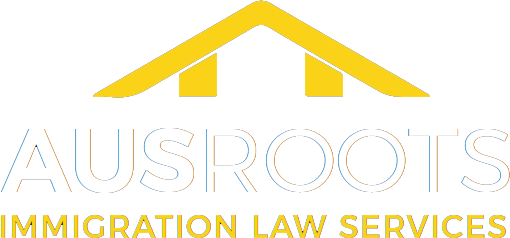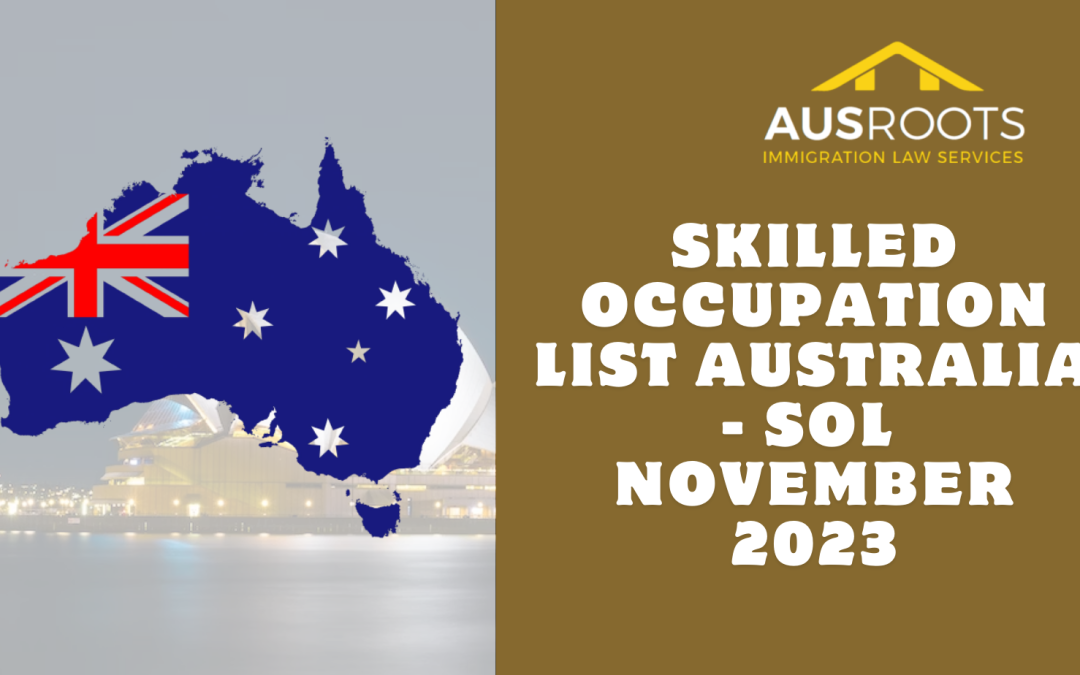Skilled Occupation List Australia – SOL | November 4, 2023
The skilled occupation lists in Australia consisted of the Medium and Long-term Strategic Skills List (MLTSSL) and the Short-term Skilled Occupation List (STSOL). Please note that these lists may have been updated since then.
The Medium and Long-term Strategic Skills List (MLTSSL) is used for skilled migration under the following visa categories:
- Skilled Independent visa (subclass 189)
- Skilled Nominated visa (subclass 190)
- Skilled Regional (Provisional) visa (subclass 489) – closed to new applications
- Skilled Work Regional (Provisional) visa (subclass 491)
The Short-term Skilled Occupation List (STSOL) is used for the Skilled Nominated visa (subclass 190) and the Skilled Work Regional (Provisional) visa (subclass 491) for specific regions.
The demand for specific occupations in Australia can change over time due to various factors, including economic conditions, industry trends, and government policies. As of my last knowledge update in September 2021, some of the occupations that were in demand in Australia included:
- Healthcare Professionals: Doctors, nurses, pharmacists, and other healthcare professionals have consistently been in demand due to the country’s aging population and healthcare needs.
- Information Technology (IT) Professionals: Roles such as software developers, network engineers, and cybersecurity specialists were in demand to support the growing technology sector.
- Engineers: Civil engineers, mechanical engineers, and electrical engineers were needed for infrastructure projects and construction.
- Skilled Trades: Tradespeople, including electricians, plumbers, and carpenters, were in demand for various construction and maintenance projects.
- Teachers: Primary and secondary school teachers, as well as educators in high-demand areas like STEM (science, technology, engineering, and mathematics), were sought after.
- Accountants and Finance Professionals: Accountants, financial analysts, and auditors were in demand to support businesses and financial institutions.
- Agricultural and Farm Workers: Australia has a thriving agriculture sector, and there’s a demand for farm workers, agricultural scientists, and related occupations.
- Social Workers and Community Service Workers: Professionals in these fields were needed to address social and community welfare needs.
- Skilled Trades in the Mining Industry: Skilled workers in the mining sector, including geologists, drillers, and heavy machinery operators, were in demand in regions with mining activities.
- Environmental Scientists and Engineers: With a focus on sustainability and environmental protection, there was a demand for professionals in this field.
- Hospitality and Tourism: As a popular tourist destination, Australia has opportunities for skilled hospitality and tourism professionals, including chefs, hotel managers, and tour guides.
- Renewable Energy: With a growing focus on clean energy, there are opportunities for skilled individuals in the renewable energy sector, such as solar and wind energy technicians and engineers.
- Environmental Sciences: Environmental scientists, ecologists, and conservationists are needed to address environmental challenges and protect Australia’s unique ecosystems.
- Manufacturing and Advanced Manufacturing: Skilled professionals in advanced manufacturing technologies and automation are in demand.
- Creative Industries: Australia has a thriving creative industry, including opportunities in film, television, design, and the arts.
- Research and Development: The country invests heavily in research and development, offering opportunities for scientists and researchers.
The demand for skilled occupations can vary over time and across different regions.
Please keep in mind that labor markets can change, so it’s essential to check the latest information from official government sources and job boards for the most up-to-date data. Here’s a general overview:
- Victoria: Melbourne, the capital of Victoria, is known for its strong job market and diverse economy. Skilled professionals in IT, healthcare, engineering, and finance have traditionally been in demand. The state government releases occupation lists, and the demand for certain skills can change periodically.
- Queensland: Queensland has seen demand for skilled workers in various industries, including healthcare, construction, hospitality, and agriculture. Regions like Brisbane and the Gold Coast offer significant job opportunities. Mining and resource-related industries are also important in some parts of Queensland.
- New South Wales (Sydney): Sydney is Australia’s largest city and offers a wide range of job opportunities in finance, IT, healthcare, education, and professional services. The state’s occupation lists are a good resource for checking specific in-demand occupations.
- Tasmania: Tasmania has been actively promoting skilled migration to address labor shortages, particularly in healthcare, engineering, hospitality, and agriculture. The Tasmanian state government provides occupation lists for potential migrants.
- Western Australia: Western Australia’s job market has traditionally been driven by the mining and resources sector. However, there is also demand for professionals in healthcare, construction, engineering, and IT. Check the Western Australian Skilled Occupation List for updates.
- South Australia: South Australia has identified a range of skilled occupations in demand, including health professionals, engineers, IT specialists, and tradespeople. Adelaide is the major job hub in the state.
Australia has a history of welcoming people from different professions and backgrounds through its various immigration programs. The country’s immigration system is designed to attract skilled workers, entrepreneurs, and investors, as well as people from diverse fields who can contribute to the Australian economy and society. Some of the key immigration programs for professionals and skilled workers in Australia include:
- Skilled Migration: Australia offers several skilled migration visas, such as the Skilled Independent Visa (subclass 189) and the Skilled Nominated Visa (subclass 190). These visas are designed for individuals with in-demand skills and qualifications.
- Employer-Sponsored Visas: Australian employers can sponsor foreign workers to fill positions in their businesses. The Temporary Skill Shortage Visa (subclass 482) and the Employer Nomination Scheme (subclass 186) are examples of such programs.
- Business and Investment Visas: Australia welcomes entrepreneurs and investors through programs like the Business Innovation and Investment Visa (subclass 188), which allows individuals to establish or invest in businesses in Australia.
- Partner and Family Visas: Australia recognizes the importance of family reunification, and there are various visa options for people wanting to join their family members who are already in Australia.
- Student Visas: Australia is a popular destination for international students, and the country has a range of student visas for individuals who wish to study at Australian educational institutions.
- Specialized Visas: There are other specialized visa categories for individuals with unique skills or qualifications, such as the Distinguished Talent Visa (subclass 124).
The Australian immigration system is points-based, considering factors like age, English language proficiency, work experience, and education. Depending on your qualifications and profession, you may be eligible for different visa categories. It’s essential to research and consult with the Australian Department of Home Affairs or a registered migration agent to determine the most suitable visa pathway for your specific situation.
Australia’s diverse and multicultural society is enriched by people from various professions and backgrounds who contribute to the country’s economy and cultural tapestry. The Australian government encourages skilled professionals, entrepreneurs, and investors to make Australia their home and actively contribute to its growth and development.

